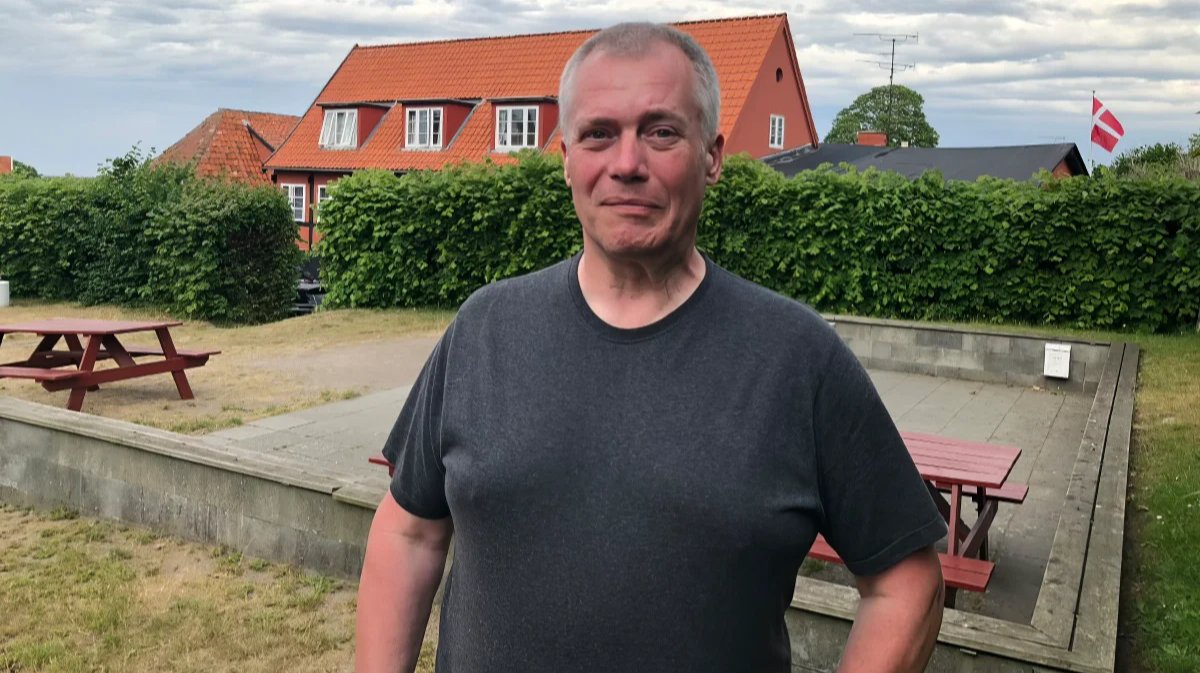Two years of war have changed Jens Alstrup beyond recognition. Since setting up the charity Freedom for Ukraine, which collects and delivers supplies for Ukrainian soldiers and refugees, Jens has been directly involved in the operations to get aid to such cities as Odesa, Kyiv, Kherson — and even Bakhmut.
I first met Jens when he was a journalist covering the Russian Far East for Novaya Gazeta and we became good friends. Now 61 years old and seriously ill, he nevertheless continues his work, and is even refusing to have the surgery he requires until the war is over.
Civilian hell
Jens arrived in Ukraine four months into the war. He has been on the front line many times since the war in Donbas broke out in 2014, but this was his first trip since the full-scale invasion.
Jens spent three nights in the city of Mykolaiv in the summer of 2022, enduring multiple air raids and coming under heavy rocket fire. There, he saw the hell experienced by civilians during wartime. “There was no missile defence system, so every missile wreaked havoc on the city,” he tells me, adding that one missile hit a five-storey building just 250 metres from where he was sleeping, crushing it completely.

Ruins of a building hit by a missile in Lyman. Photo: Jens Alstrup
On 10 October 2022, Jens was in the Ukrainian capital Kyiv when Russia launched a series of missile strikes on the city, killing seven people and injuring 49 others.
That morning, Ukrainian President Volodymyr Zelensky had addressed the people of Kyiv, telling them to stock up on food and oil in case the city had to be evacuated. When Jens drove out of the capital that day he saw long queues at all the petrol stations.
“I cried right into my helmet”, he recalls. “I thought: Will they have to flee? Are we going to see millions of Ukrainians fleeing war again?”
Freedom
Having become convinced that simply reporting on the war was not enough, Jens returned to his native Denmark to raise funds to help Ukrainians in any way possible, later creating Freedom for Ukraine (FFU). The foundation supplies everything from batteries, 3D printers, camouflage and lanterns to rubber boots, sleeping bags and tents to one Ukrainian Special Forces brigade and one regular infantry brigade. The foundation also provides power generators to civilians.
Since creating FFU, Jens has driven to Ukraine every month with his van full of equipment and medical supplies. His first trip in that capacity was to a brigade near Bakhmut, from which he proudly shows off a souvenir he was given: a child’s drawing of a blue-eyed cat dressed in a Ukrainian soldier’s uniform with a machine gun. “Seven-year-old Andriy drew it. He is the son of a close friend who is fighting in that brigade”. Jens pauses, then adds: “Out there, you forget what self-pity is.”
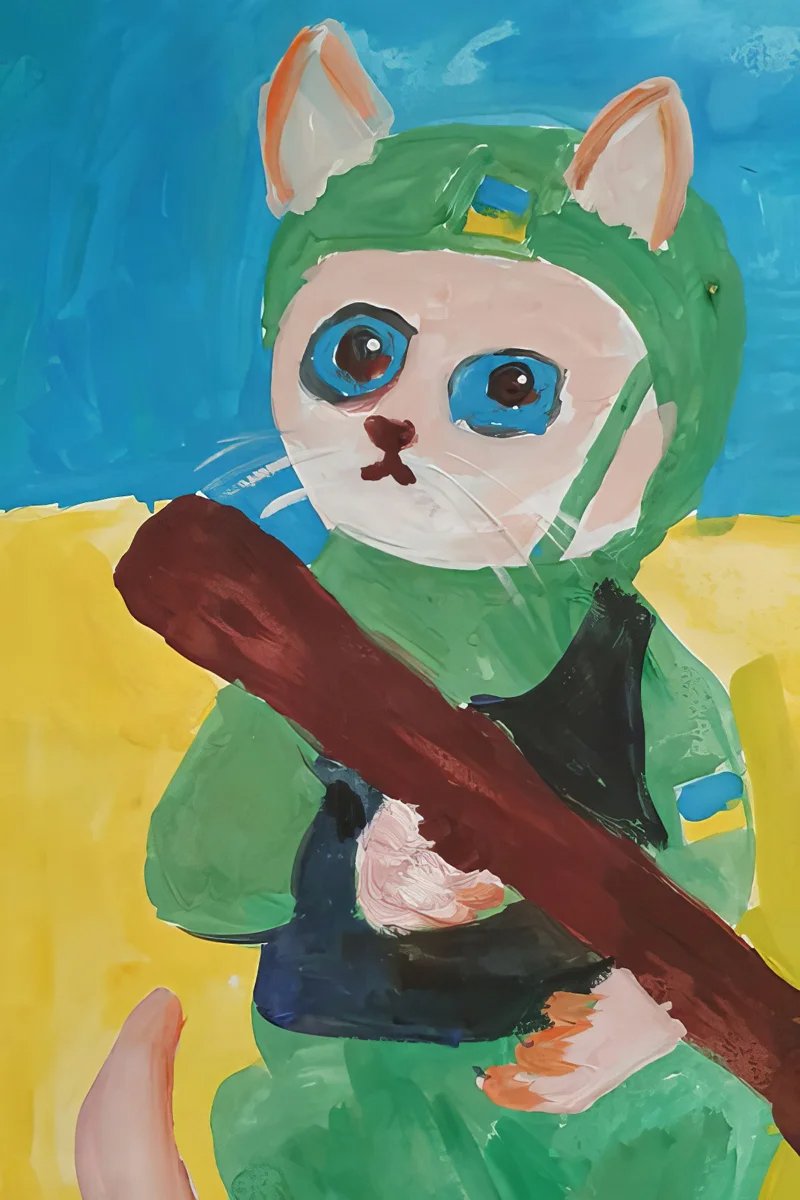
The drawing presented to Jens. Author: Andriy, seven years old
The front line
In May, as the Russian army captured the last remaining buildings in Bakhmut, Jens reached the neighbourhood of Klishchiivka, south of the city. From there he was guided by members of the brigade he’d already supplied several times towards the former Russian front line. The company stopped at a bunker that had been hit by a shell just two days ago. Russian soldiers had been sheltering inside when the shell landed. Nobody had survived.
Around the bunker were food cans and plastic bottles filled with urine.
“It was painful to see,” Jens tells me. “They had been sheltering for a long time, unable to leave, throwing bottles of urine outside: it was hell. From a Ukrainian point of view, it was an achievement — they had captured Russian trenches. But from a human point of view, it was horrendous.”
The Ukrainians removed all the bodies. Jens says they always collect them, put them in body bags and send them to Russia to be buried. “Russia does not always take them,” he adds. “They don’t want to acknowledge the scale of their human losses.”
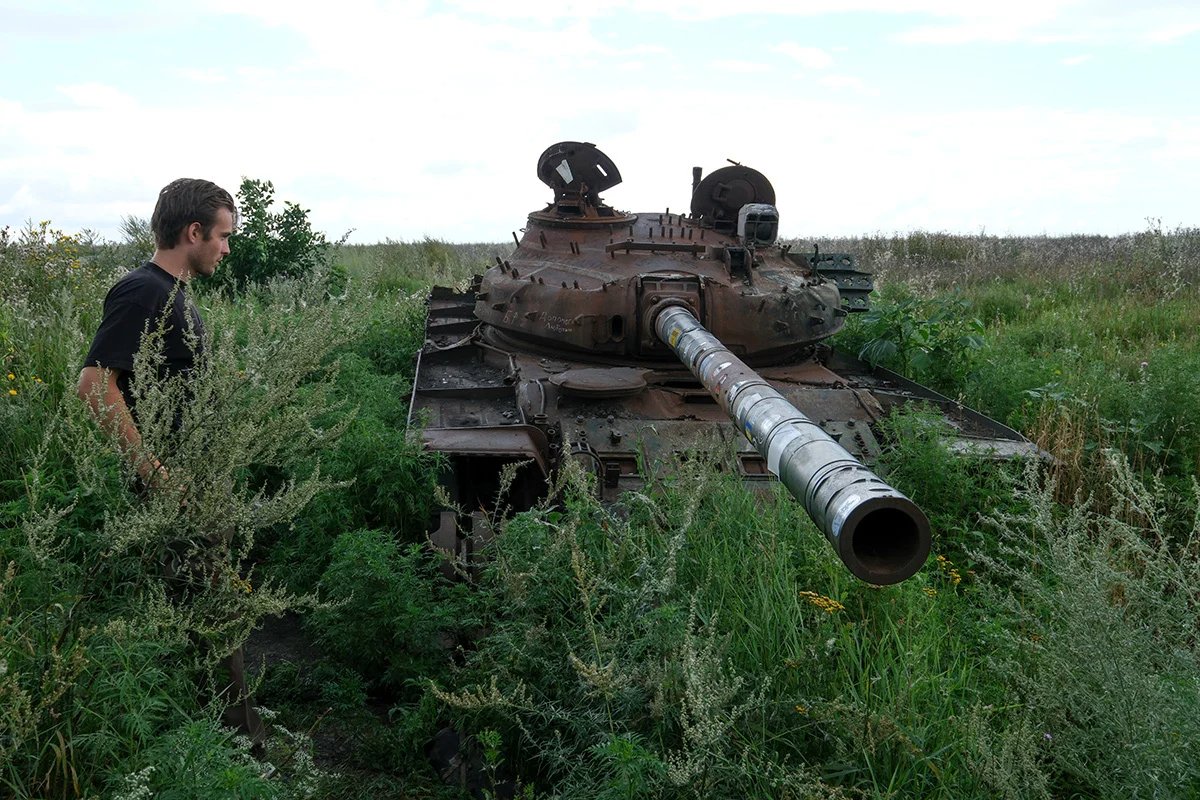
The front line area. Photo: Jens Alstrup
They travelled to a spot where Ukrainians and Russians had launched simultaneous attacks on each other. “It was total chaos — impossible to tell who’s who in the crossfire — but the casualties on both sides were on very different scales” says Jens.
“The Russian army uses Soviet tactics that discourage initiative, so soldiers blindly follow orders. Hence why many more of them die.”
The smell of death
The air was heavy with the smell of dust and explosions. But the smell of artillery dissipated as they continued. Gradually, the smell of dry earth disappeared as well. That was when Jens noticed the smell of the dead.
He says the smell lingered for a long time; that even after he left and bathed he could not wash it off. I asked him whether it was his brain playing a trick on him, but he insisted it was real.
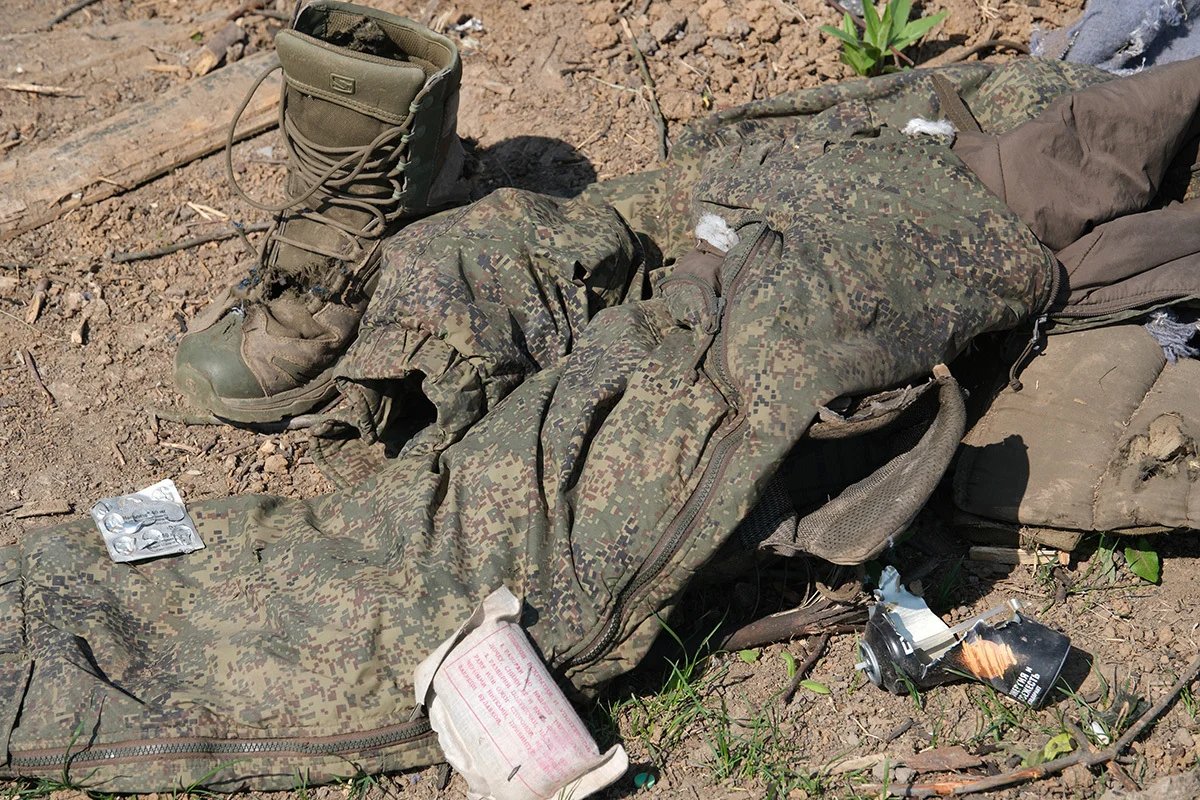
The front line near Bakhmut. Russian soldiers’ belongings. Photo: Jens Alstrup
Jens thinks it is important to talk about the things no one wants to discuss: the smells of war, the dead in body bags, the horror of the front line. And going there again and again is important to him. Why?
“People need to know about it. Ordinary people. Because ordinary people too make the war possible,” Jens explains.
Jens only wants one thing from people in Denmark — to continue to help Ukrainians. Denmark is already one of Ukraine’s key supporters. But Jens believes that more is required for victory.
Tears
We spoke by phone in December, when Jens had returned from Ukraine. He spent 36 hours at home, washed, changed his clothes, loaded his van full of supplies again, and drove back (it is likely his 10th trip, but he himself cannot remember exactly).
He listed all the things he had managed to do since we last spoke. He said that he’d never been so busy in his life and that he had put 100,000 kilometres on his van and motorbike last year.
“I won’t lie, there have been a lot of tears. I didn’t expect it,” he says, explaining that in Ukrainian culture men don’t cry. “But to them I am an outsider, a neutral figure. So they cry on my shoulder. Soldiers cry, officers. Even a colonel cried. It is very, very hard on them. And yes, it has affected me.”
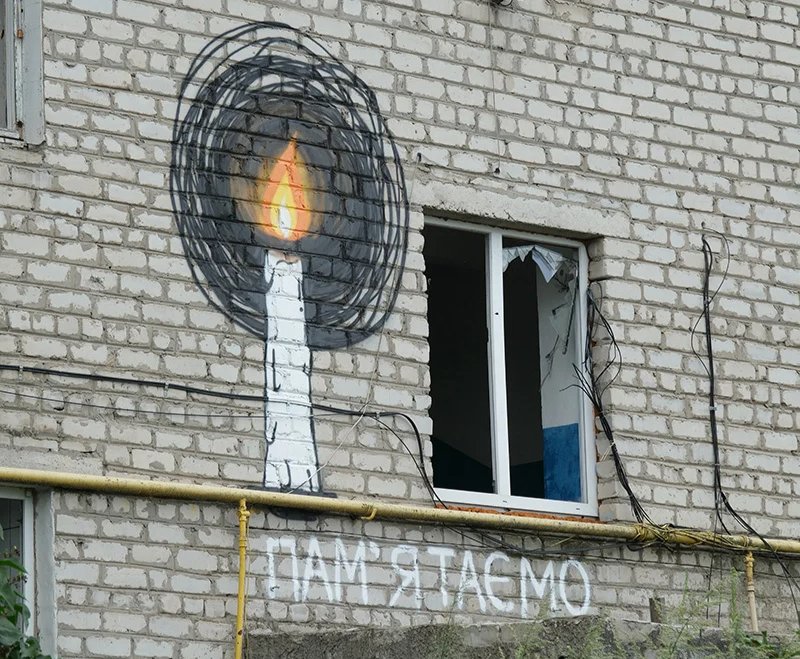
Izium. Photo: Jens Alstrup
The evacuated
A man with Crohn’s disease, unfit to serve in the army, asked Jens to drive him from Ukraine to Denmark, where his wife and children had been granted asylum.
Jens agreed. But the days before they left, the man agreed to take part in a communal effort to open a mass grave.
It was while doing that that a booby trap left by the retreating Russian troops tore off both his hands, leaving him severely wounded, blind and lucky to be alive. Doctors in Kharkiv managed to stabilise his condition and a few days later Jens drove him to Denmark.
When Ukrainian soldiers inspected Jens’ car and saw his passenger, they cried. The Kyiv hotel where they stayed did not charge them. When they arrived in Germany, the hotel receptionist broke down, sobbing so hard that she was unable to help them.
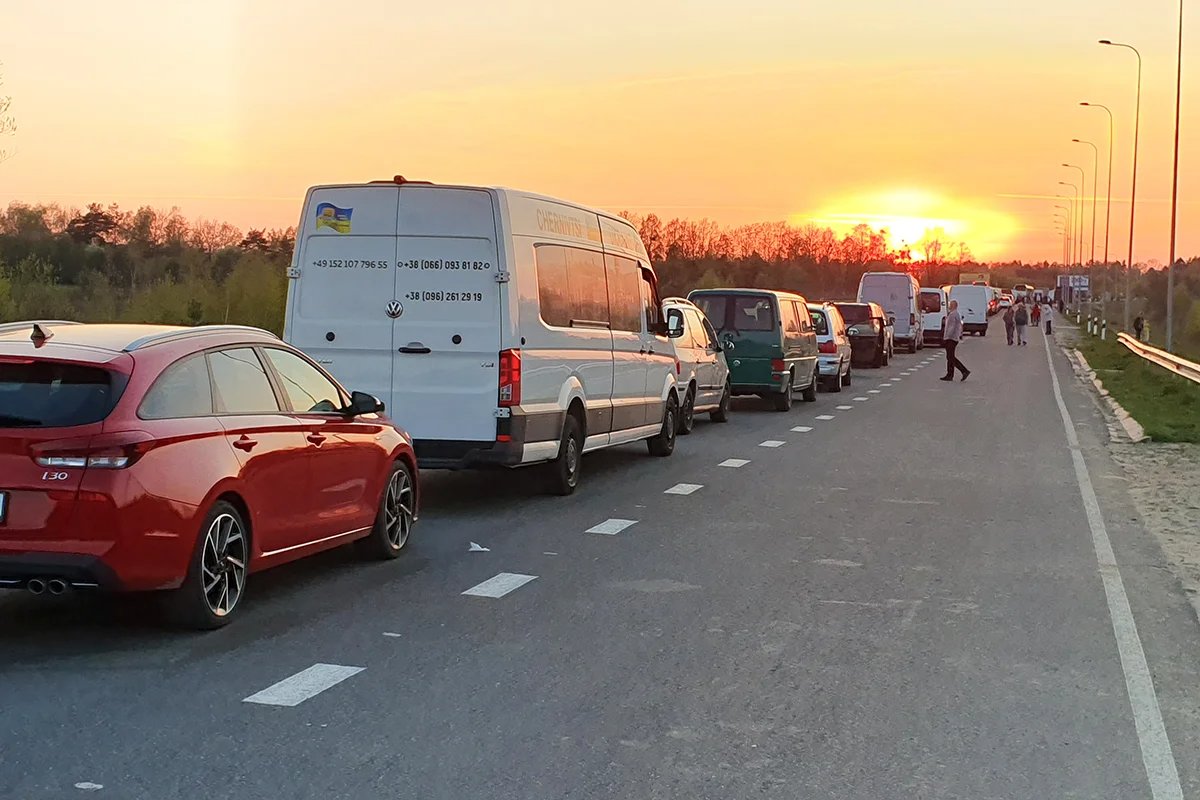
Traffic jam on the border with Ukraine. Photo: Jens Alstrup
Travelling with them was the injured man’s mother, who was travelling without a passport. When Polish border police saw the man, they waved all of them through.
In a Danish hospital a few days later, the wounded man underwent surgery on his arm, which had begun to rot. The following day, he had surgery on his eyes and 70% of his eyesight was restored.
FFU has now evacuated six wounded people to Denmark.
“Yes, only six. It is not a big deal for the world, but for these six people and their families, it is,” Jens says.
Burn out
Jens often brings up the challenging psychological situation on the front. He has seen brutal attacks turn the strongest soldiers into “zombies”. In one case, he was in an ambulance that was carrying a soldier who had shot himself in the head. The bullet was lodged deep in his brain, but he was still alive in the ambulance. Jens looked at the man’s head wrapped in bandages, a wet red stain growing larger and larger. The soldier subsequently died, and the senselessness of his death overwhelmed Jens.
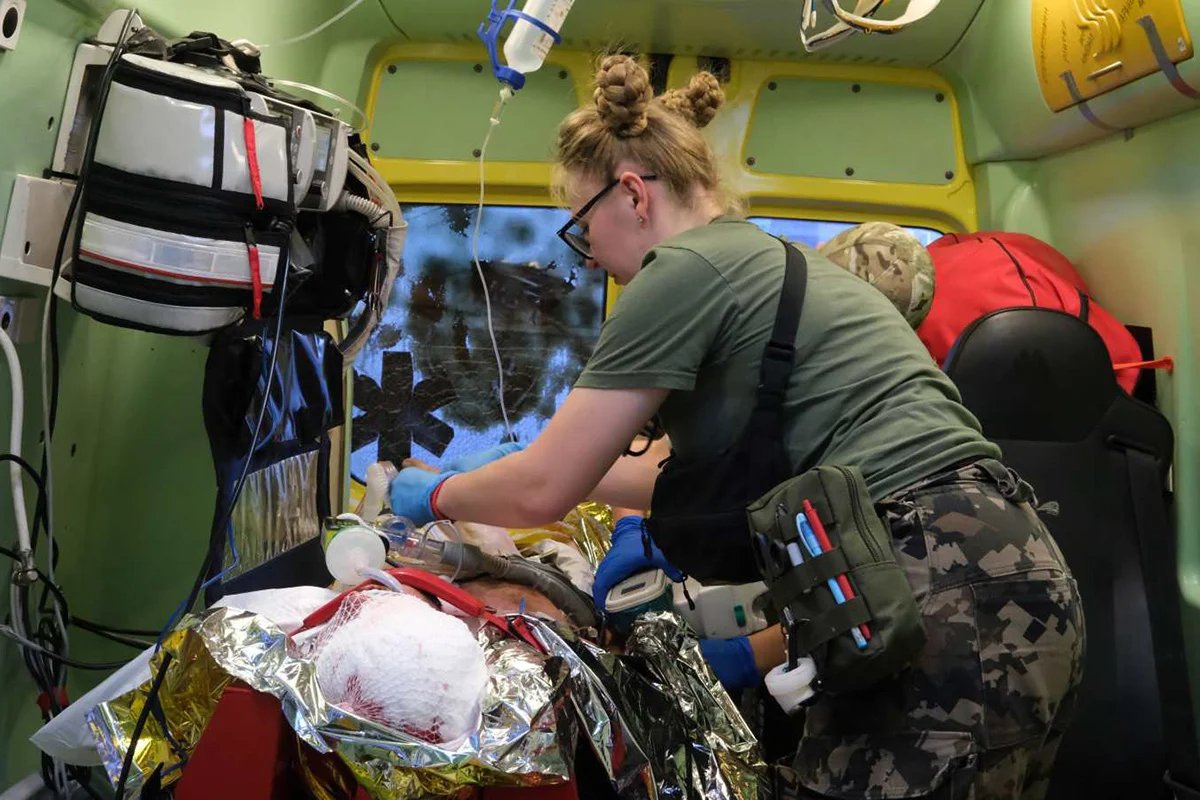
Evacuating a soldier with a bullet wound to the head. Photo: Jens Alstrup
He was burnt out when returned to Denmark. “For a whole week it was like I didn’t exist. I just lay there and did nothing,” he recalls.
“What do you think of Russia now?” I ask him. “I know it so well, I’ve been there so many times,” Jens replies after a pause. “I love it very much.”
But Jens concedes that his feelings are contradictory.
“Friendly, hospitable people who open their doors to you, let you sleep on their sofas, drink vodka with you, grill kebabs for you… I have a lot of great memories like that. But they exist with other, darker memories. How FSB officers woke me up in the middle of the night. How I was assaulted by armed thugs. How a policeman proudly showed me, his “dear guest”, an elderly drunken woman that he had beaten up, lying on the floor of the police station, covered in blood and sobbing…”
“The son of that nice and friendly Buryat I met in 1997 may have become a soldier who is killing my friends in Ukraine right now. He may be a great person, but at the same time he is my mortal enemy.”
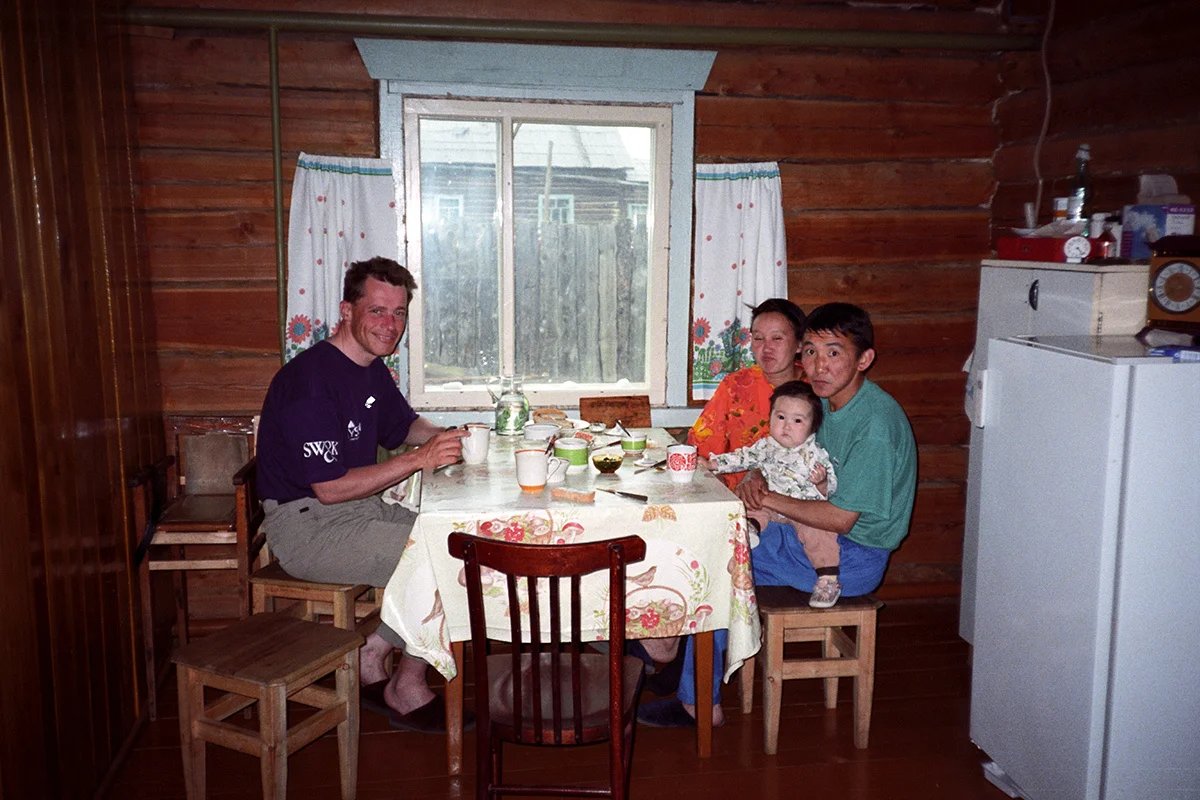
Young Jens somewhere in Siberia. Photo from Jens Alstrup’s personal archive
“I had hopes for a freer Russia. Freedom of speech, a sparkling media landscape: they did exist, but not for long enough, making it easy for Putin to push it all to one side,” Jens says.
Vadim
Whenever Jens discusses Russia, he always mentions the gruesome conditions and the monstrous scale of human casualties suffered by the Russian army.
"The high-ranking officers demand relentless attacks, which means a bloody mess for foot soldiers. This has been the Russian army’s modus operandi since at least World War I — using frontal attacks that come with an unjustifiably high death toll. For over a century, the contempt these officers have for the lives of their soldiers has remained unchanged. So many are dying. It’s an unimaginable slaughter.”
To raise more money for his project, Jens gives lectures to Danes about Ukraine and the front line. During his talks, Jens asks his students to imagine a Russian soldier.
He says his name is Vadim and that nothing is known about him except for two facts: Vadim was drafted into the army on 28 September 2022 and died three days later.
“I don’t know if he hated Putin or not. Maybe he agreed to go to war because otherwise he would lose his job or the chance to study at university, or maybe he was afraid of going to prison. Or maybe he adored Putin, thought he was the toughest guy in the world and believed the Ukrainians were Nazis who needed to be destroyed. Who can tell now. But he was a human being. I’m sure he had a mother, a father. Maybe a sister. Maybe a wife and children, or a fiancée. He definitely had friends. I’m sure that a lot of people miss him. Those gigantic casualty figures all consist of such people with similar stories. A terrible tragedy is unfurling, and it will haunt both countries for a very long time.”
Ukrainians often explain to Jens that this Vadim could have said no, whereas Ukrainians do not have that choice: if they refuse to fight, Ukraine will cease to exist.
Jens knows that many more lives will be lost before this war will end in a free and independent Ukraine. But he is doing everything in his power to hasten Ukraine’s victory.
Join us in rebuilding Novaya Gazeta Europe
The Russian government has banned independent media. We were forced to leave our country in order to keep doing our job, telling our readers about what is going on Russia, Ukraine and Europe.
We will continue fighting against warfare and dictatorship. We believe that freedom of speech is the most efficient antidote against tyranny. Support us financially to help us fight for peace and freedom.
By clicking the Support button, you agree to the processing of your personal data.
To cancel a regular donation, please write to [email protected]
